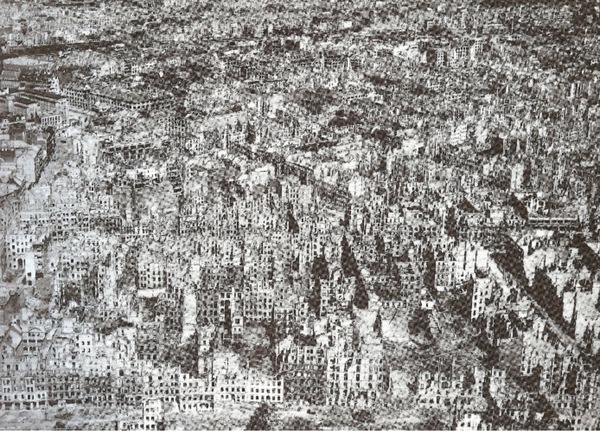
(function(d, s, id) { var js, fjs = d.getElementsByTagName(s)[0]; if (d.getElementById(id)) return; js = d.createElement(s); js.id = id; js.src = “https://connect.facebook.net/en_US/sdk.js#xfbml=1&version=v3.0”; fjs.parentNode.insertBefore(js, fjs); }(document, ‘script’, ‘facebook-jssdk’)); –>
–>
November 7, 2023
We must be very careful how we deal with Iran and other bad actors in the world. If forced into a war in the Middle East, we must go in prepared to throw all our national willpower into the struggle. Poking at our enemies here and there has not brought real peace to that corner of the world—just periods of relatively less conflict.
‘); googletag.cmd.push(function () { googletag.display(‘div-gpt-ad-1609268089992-0’); }); document.write(”); googletag.cmd.push(function() { googletag.pubads().addEventListener(‘slotRenderEnded’, function(event) { if (event.slot.getSlotElementId() == “div-hre-Americanthinker—New-3028”) { googletag.display(“div-hre-Americanthinker—New-3028”); } }); }); }
Recent history demonstrates that our government usually doesn’t understand how to properly employ our military in anything other than an all-out war or where the US simply has overwhelming strength against an enemy that does not really enjoy the support of its people.
During WW2, the US clearly demonstrated the willpower to fight to the bitter end. We made use of all the resources at our disposal, including using two atomic bombs against Japan.
WW2 involved everyone in the US to one extent or another, from frontline GIs to the young Boy Scouts collecting scrap metal to support the war effort. Women left traditional roles and entered the working world in factories and other professions. At the war’s end, the US was relatively untouched by actual combat, still had fully operational factories and supply lines, and stood ready to supply the rest of the world with what it needed to rebuild. In short, the US was becoming more prosperous than ever.

Image: Berlin in 1945.
‘); googletag.cmd.push(function () { googletag.display(‘div-gpt-ad-1609270365559-0’); }); document.write(”); googletag.cmd.push(function() { googletag.pubads().addEventListener(‘slotRenderEnded’, function(event) { if (event.slot.getSlotElementId() == “div-hre-Americanthinker—New-3035”) { googletag.display(“div-hre-Americanthinker—New-3035”); } }); }); }
Due largely to fear of Soviet expansion and a great deal of hubris, the US took on the role of the global anti-communist. However, we learned that, short of a full-scale engagement, wars are actually quite difficult to win. This is especially true when the enemy is highly motivated by past injustices (perceived or real) and a desire for self-determination.
Our first hard lesson came via the Korean War. We certainly had the ability to fight the communist North Koreans—and even the Chinese when they unexpectedly entered the fight—but we did not have the will to fight another WW2-type war against mainland China, so the war “ended” in a draw.
Our second came from Vietnam. We fought alongside our South Vietnamese allies. However, over time and due to internal corruption and political ambiguity in South Vietnam, we gradually took on the responsibility for most of the fighting. We limited our attacks on the North and played by rules that the enemy did not. We were actually very successful against the enemy, but the South lost much of its will to fight and, as the conflict dragged on, the American people decided enough was enough.
In my time in the army, we learned about the concept of Low-Intensity Conflict (LIC), unconventional warfare (UW), and the “hearts and minds” concepts gleaned from Vietnam. These principles implied that the US might not need to fight a full-scale war to “win.”
Rather, if we could do things to address the injustices inflicted on the people to get their support, and fight only limited engagements with small, determined units of guerrillas, we could simply wear out the enemy. We also knew that we could build up our bands of guerrillas into a larger army over time and engage the enemy in a conventional war if that ultimately became necessary. Very sound in principle, yet extremely difficult to do.
We were also fully aware that, in any future engagement supporting another country, we could not allow ourselves to become the main combatant again. The host nation’s forces had to have the will to win, and their people had to support them. This why we had Special Forces units involved in Civic Action projects—building remote clinics and schools in war-torn areas, to demonstrate in visible ways that their government did, in fact, care for them.
‘); googletag.cmd.push(function () { googletag.display(‘div-gpt-ad-1609268078422-0’); }); document.write(”); googletag.cmd.push(function() { googletag.pubads().addEventListener(‘slotRenderEnded’, function(event) { if (event.slot.getSlotElementId() == “div-hre-Americanthinker—New-3027”) { googletag.display(“div-hre-Americanthinker—New-3027”); } }); }); } if (publir_show_ads) { document.write(“
We put this into action during the El Salvadoran Civil War. We limited our full-time “advisors” to 55 Special Forces personnel, occasionally augmented by small numbers of temporary training support (aviation, medical, artillery, etc.). Special Forces troops ran a centralized training center that professionalized the Salvadoran army and introduced the concept of small unit leaders—aka, sergeants. This led to significantly better discipline and control in combat. We brought in more reliable weapons, equipment, medical training, and command and control such that the drafted army of teenagers operated more effectively than the communist insurgents.
The Dominican Republic, Grenada, and Panama don’t count as traditional wars, in my opinion, though Americans fought and died in them. Our forces were simply overwhelming.
Then came The Gulf War. Once again, we used overwhelming force to defeat the minimally motivated and technologically outclassed military of Saddam Hussein. The majority of his military really did not care about Iraq’s occupation of Kuwait and were not prepared to die for Saddam, though tremendous numbers of Iraqi troops did die. President George H. W. Bush decided not to crush Saddam and, instead, implemented a policy of containment and economic sanctions. Saddam did not care about the losses to his people—only his personal power and ego—so he did not behave like a defeated dictator. He continued making threats to his neighbors and supporting global terrorism.
Then came the second invasion of Iraq under President George W. Bush. We can debate the justification for the war, but I will say that we completely defeated Iraq and could have left that country in the hands of a different government early on. I supported the war to this point.
Unfortunately, the Bush Administration decided that it was time for “nation building,” which was a flawed strategy because we had no idea what type of nation the Iraqis wanted or any clue how to build it.
Worse yet, the US occupation authority in Iraq decided to ignore the opportunity to keep the remaining few hundred thousand Iraqi army troops employed and controlled by their own generals. These generals wanted to use them to keep the lid on various boiling ethnic and religious rivalries in Iraqi society.
Unlike Saddam, these generals had no real issue with the US and the West. As a result of the US rejection, the army broke up, and these now unemployed soldiers (with families to feed) immediately sided with local warlords, criminals, and religious groups. This is when Iraq exploded into an insurgent maelstrom for which many US troops paid with their lives.
As if this weren’t enough, we invaded Afghanistan during this time frame. Once again, we had no idea what type of government the Afghans really wanted but set off on another nation-building fiasco. Significant portions of Afghanistan still lived as they had in the 11th Century, and most of these people had never traveled more than a few miles from their homes in their entire lives.
Still, the US leadership figured that, if a democratic government could control the major cities, then the rest of the population would eventually come along. Once again, we didn’t know enough and we underestimated the will of our enemy.
This was greatly complicated by the significant ambivalence many Afghans to changes in how they lived. They typically viewed the West as evil, corrupt, and foolish, and they had no understanding—and subsequently no need—of modern government as we proposed it.
The Taliban were willing to fight to the end, and they didn’t follow Western ideas of the rules of war as we tried to. They didn’t worry about international boundaries, had little sympathy for their own people, and had numerous safe havens outside the country. Eventually, we lost the will to fight, and we all know how tragically that ended.
The lesson is that if we are going to go to war for ourselves or our allies, we must do so understanding that we cannot always fight a “limited” war…especially if our enemy is not fighting that way. Israel has likely come to this conclusion already. If we go to war under these conditions, we should do so to completely defeat the enemy and break the will of its supporters.
Ultimately, we must rid ourselves of the idea that we can apply limited warfare in the Middle East. We may tamp down the enemy threat for a while, but as in the case of Israel before October 7, the enemy will eventually come back and do ever greater harm.
<!–
–>
<!– if(page_width_onload <= 479) { document.write("
“); googletag.cmd.push(function() { googletag.display(‘div-gpt-ad-1345489840937-4’); }); } –> If you experience technical problems, please write to [email protected]
FOLLOW US ON
<!–
–>
<!– _qoptions={ qacct:”p-9bKF-NgTuSFM6″ }; ![]() –> <!—-> <!– var addthis_share = { email_template: “new_template” } –>
–> <!—-> <!– var addthis_share = { email_template: “new_template” } –>





